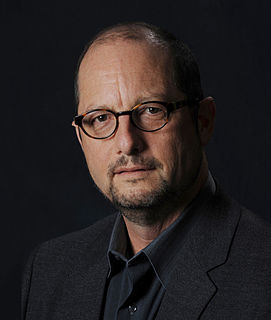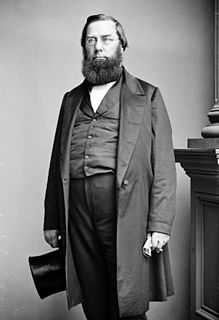A Quote by Malcolm Muggeridge
This life in us; however low it flickers or fiercely burns, is still a divine flame which no man dare presume to put out, be his motives never so humane and enlightened; To suppose otherwise is to countenance a death-wish; Either life is always and in all circumstances sacred, or intrinsically of no account; it is inconceivable that it should be in some cases the one, and in some the other.
Related Quotes
One-half of life is admitted by us to be passed in sleep, in which, however, it may appear otherwise, we have no perception of truth, and all our feelings are delusions; who knows but the other half of life, in which we think we are awake, is a sleep also, but in some respects different from the other, and from which we wake when we, as we call it, sleep. As a man dreams often that he is dreaming, crowding one dreamy delusion on another.
We owe them [animals] a decent life and a decent death, and their lives should be as low-stress as possible. That's my job. I wish animals could have more than just a low-stress life and a quick, painless death. I wish animals could have a good life, too, with something useful to do. People were animals, too, once, and when we turned into human beings we gave something up. Being close to animals brings some of it back.
I support the death penalty. I think that it has to be administered not only fairly, with attention to things like DNA evidence, which I think should be used in all capital cases, but also with very careful attention. If the wrong guy is put to death, then that's a double tragedy. Not only has an innocent person been executed but the real perpetrator of the crime has not been held accountable for it, and in some cases may be still at large. But I support the death penalty in the most heinous cases.
LIFE IS A DIVINE GIFT. The divine is not something outside of us; it is right in our very center; it is our freedom. In our training, we learn the real nature of life and death. When life is victorious, there is birth; when it is thwarted, there is death. A warrior is always engaged in a life-and-death struggle for peace.
The religious man, the mystic, tries to explore the mystery of death. In exploring the mystery of death, he inevitably comes to know what life is, what love is. Those are not his goals. His goal is to penetrate death, because there seems to be nothing more mysterious than death. Love has some mystery because of death, and life also has some mystery because of death.
In terms of the historical record, I should also point out that there is no account in any ancient source whatsoever about King Herod slaughtering children in or around Bethlehem, or anyplace else. No other author, biblical or otherwise, mentions this event. Is it, like John's account of Jesus' death, a detail made up by Matthew in order to make some kind of theological point?
Of crimes injurious to the persons of private subjects, the most principal and important is the offense of taking away that life, which is the immediate gift of the great creator; and which therefore no man can be entitled to deprive himself or another of, but in some manner either expressly commanded in, or evidently deducible from, those laws which the creator has given us; the divine laws, I mean, of either nature or revelation.
To be successful, a man must exert an effective influence upon his brothers and upon his associates, and the degree in which he accomplishes this depends on the personality of the man. The incandescence of which he is capable. The flame of fire that burns inside of him. The magnetism which draws the heart of other men to him.
We are left with nothing but death, the irreducible fact of our own mortality. Death after a long illness we can accept with resignation. Even accidental death we can ascribe to fate. But for a man to die of no apparent cause, for a man to die simply because he is a man, brings us so close to the invisible boundary between life and death that we no longer know which side we are on. Life becomes death, and it is as if this death has owned this life all along. Death without warning. Which is to say: life stops. And it can stop at any moment.

































